Discover Gradient Dissent: Conversations on AI
Gradient Dissent: Conversations on AI

Gradient Dissent: Conversations on AI
Author: Lukas Biewald
Subscribed: 644Played: 14,366Subscribe
Share
© All rights reserved
Description
Join Lukas Biewald on Gradient Dissent, an AI-focused podcast brought to you by Weights & Biases. Dive into fascinating conversations with industry giants from NVIDIA, Meta, Google, Lyft, OpenAI, and more. Explore the cutting-edge of AI and learn the intricacies of bringing models into production.
131 Episodes
Reverse
The future of AI is physical. In this episode, Lukas Biewald talks to Nikolaus West, CEO of Rerun, about why the breakthrough required to get AI out of the lab and into the messy real world is blocked by poor data tooling. Nikolaus explains how Rerun solved this by adopting an Entity Component System (ECS), a data model built for games, to handle complex, multimodal, time-aware sensor data. This is the technology that makes solving previously impossible tasks, like flexible manipulation, suddenly feel "boring." Connect with us here: Nikolaus West: https://www.linkedin.com/in/nikolauswest/Rerun: https://www.linkedin.com/company/rerun-io/Lukas Biewald: https://www.linkedin.com/in/lbiewald/Weights & Biases: https://www.linkedin.com/company/wandb/
Is video AI a viable path toward AGI? Runway ML founder Cristóbal Valenzuela joins Lukas Biewald just after Gen 4.5 reached the #1 position on the Video Arena Leaderboard, according to community voting on Artificial Analysis. Lukas examines how a focused research team at Runway outpaced much larger organizations like Google and Meta in one of the most compute-intensive areas of machine learning.Cristóbal breaks down the architecture behind Gen 4.5 and explains the role of “taste” in model development. He details the engineering improvements in motion and camera control that solve long-standing issues like the restrictive “tripod look,” and shares why video models are starting to function as simulation engines with applications beyond media generation.Connect with us here:Cristóbal Valenzuela: https://www.linkedin.com/in/cvalenzuelabRunway: https://www.linkedin.com/company/runwayml/Lukas Biewald: https://www.linkedin.com/in/lbiewald/Weights & Biases: https://www.linkedin.com/company/wandb/
In this episode of Gradient Dissent, Lukas Biewald talks with Tuhin Srivastava, CEO and founder of Baseten, one of the fastest-growing companies in the AI inference ecosystem. Tuhin shares the real story behind Baseten’s rise and how the market finally aligned with the infrastructure they’d spent years building.They get into the core challenges of modern inference, including why dedicated deployments matter, how runtime and infrastructure bottlenecks stack up, and what makes serving large models fundamentally different from smaller ones.Tuhin also explains how vLLM, TensorRT-LLM, and SGLang differ in practice, what it takes to tune workloads for new chips like the B200, and why reliability becomes harder as systems scale. The conversation dives into company-building, from killing product lines to avoiding premature scaling while navigating a market that shifts every few weeks.Connect with us here: Tuhin Srivastva: https://www.linkedin.com/in/tuhin-srivastava/ Lukas Biewald: https://www.linkedin.com/in/lbiewald/Weights & Biases: https://www.linkedin.com/company/wandb/
In this episode of Gradient Dissent, Lukas Biewald talks with the CEO & founder of Surge AI, the billion-dollar company quietly powering the next generation of frontier LLMs. They discuss Surge's origin story, why traditional data labeling is broken, and how their research-focused approach is reshaping how models are trained.You’ll hear why inter-annotator agreement fails in high-complexity tasks like poetry and math, why synthetic data is often overrated, and how Surge builds rich RL environments to stress-test agentic reasoning. They also go deep on what kinds of data will be critical to future progress in AI—from scientific discovery to multimodal reasoning and personalized alignment.It’s a rare, behind-the-scenes look into the world of high-quality data generation at scale—straight from the team most frontier labs trust to get it right.Timestamps: 00:00 – Intro: Who is Edwin Chen? 03:40 – The problem with early data labeling systems 06:20 – Search ranking, clickbait, and product principles 10:05 – Why Surge focused on high-skill, high-quality labeling 13:50 – From Craigslist workers to a billion-dollar business 16:40 – Scaling without funding and avoiding Silicon Valley status games 21:15 – Why most human data platforms lack real tech 25:05 – Detecting cheaters, liars, and low-quality labelers 28:30 – Why inter-annotator agreement is a flawed metric 32:15 – What makes a great poem? Not checkboxes 36:40 – Measuring subjective quality rigorously 40:00 – What types of data are becoming more important 44:15 – Scientific collaboration and frontier research data 47:00 – Multimodal data, Argentinian coding, and hyper-specificity 50:10 – What's wrong with LMSYS and benchmark hacking 53:20 – Personalization and taste in model behavior 56:00 – Synthetic data vs. high-quality human data Follow Weights & Biases:https://twitter.com/weights_biases https://www.linkedin.com/company/wandb
In this episode of Gradient Dissent, Lukas Biewald sits down with Arvind Jain, CEO and founder of Glean. They discuss Glean's evolution from solving enterprise search to building agentic AI tools that understand internal knowledge and workflows. Arvind shares how his early use of transformer models in 2019 laid the foundation for Glean’s success, well before the term "generative AI" was mainstream.They explore the technical and organizational challenges behind enterprise LLMs—including security, hallucination suppression—and when it makes sense to fine-tune models. Arvind also reflects on his previous startup Rubrik and explains how Glean’s AI platform aims to reshape how teams operate, from personalized agents to ever-fresh internal documentation.Follow Arvind Jain: https://x.com/jainarvindFollow Weights & Biases: https://x.com/weights_biasesTimestamps: [00:01:00] What Glean is and how it works [00:02:39] Starting Glean before the LLM boom [00:04:10] Using transformers early in enterprise search [00:06:48] Semantic search vs. generative answers [00:08:13] When to fine-tune vs. use out-of-box models [00:12:38] The value of small, purpose-trained models [00:13:04] Enterprise security and embedding risks[00:16:31] Lessons from Rubrik and starting Glean [00:19:31] The contrarian bet on enterprise search [00:22:57] Culture and lessons learned from Google [00:25:13] Everyone will have their own AI-powered "team" [00:28:43] Using AI to keep documentation evergreen [00:31:22] AI-generated churn and risk analysis [00:33:55] Measuring model improvement with golden sets[00:36:05] Suppressing hallucinations with citations [00:39:22] Agents that can ping humans for help [00:40:41] AI as a force multiplier, not a replacement [00:42:26] The enduring value of hard work
In this episode of Gradient Dissent, Lukas Biewald talks with Jarek Kutylowski, CEO and founder of DeepL, an AI-powered translation company. Jarek shares DeepL’s journey from launching neural machine translation in 2017 to building custom data centers and how small teams can not only take on big players like Google Translate but win.They dive into what makes translation so difficult for AI, why high-quality translations still require human context, and how DeepL tailors models for enterprise use cases. They also discuss the evolution of speech translation, compute infrastructure, training on curated multilingual datasets, hallucinations in models, and why DeepL avoids fine-tuning for each individual customer. It’s a fascinating behind-the-scenes look at one of the most advanced real-world applications of deep learning.Timestamps: [00:00:00] Introducing Jarek and DeepL’s mission [00:01:46] Competing with Google Translate & LLMs [00:04:14] Pretraining vs. proprietary model strategy [00:06:47] Building GPU data centers in 2017 [00:08:09] The value of curated bilingual and monolingual data [00:09:30] How DeepL measures translation quality [00:12:27] Personalization and enterprise-specific tuning[00:14:04] Why translation demand is growing [00:16:16] ROI of incremental quality gains [00:18:20] The role of human translators in the future [00:22:48] Hallucinations in translation models [00:24:05] DeepL’s work on speech translation [00:28:22] The broader impact of global communication [00:30:32] Handling smaller languages and language pairs [00:32:25] Multi-language model consolidation [00:35:28] Engineering infrastructure for large-scale inference [00:39:23] Adapting to evolving LLM landscape & enterprise needs
In this episode of Gradient Dissent, Lukas Biewald sits down with Thomas Dohmke, CEO of GitHub, to talk about the future of software engineering in the age of AI. They discuss how GitHub Copilot was built, why agents are reshaping developer workflows, and what it takes to make tools that are not only powerful but also fun.Thomas shares his experience leading GitHub through its $7.5B acquisition by Microsoft, the unexpected ways it accelerated innovation, and why developer happiness is crucial to productivity. They explore what still makes human engineers irreplaceable and how the next generation of developers might grow up coding alongside AI.Follow Thomas Dohmke: https://www.linkedin.com/in/ashtom/Follow Weights & Biases:https://twitter.com/weights_biases https://www.linkedin.com/company/wandb
In this episode of Gradient Dissent, Lukas Biewald talks with Martin Shkreli — the infamous "pharma bro" turned founder — about his path from hedge fund manager and pharma CEO to convicted felon and now software entrepreneur. Shkreli shares his side of the drug pricing controversy, reflects on his prison experience, and explains how he rebuilt his life and business after being "canceled."They dive deep into AI and drug discovery, where Shkreli delivers a strong critique of mainstream approaches. He also talks about his latest venture in finance software, building Godel Terminal “a Vim for traders", and why he thinks the AI hype cycle is just beginning. It's a wide-ranging and candid conversation with one of the most controversial figures in tech and biotech.Follow Martin Shkreli on TwitterGodel Terminal: https://godelterminal.com/Follow Weights & Biases on Twitterhttps://www.linkedin.com/company/wandb Join the Weights & Biases Discord Server:https://discord.gg/CkZKRNnaf3
In this episode of Gradient Dissent, host Lukas Biewald talks with Sualeh Asif, the CPO and co-founder of Cursor, one of the fastest-growing and most loved AI-powered coding platforms. Sualeh shares the story behind Cursor’s creation, the technical and design decisions that set it apart, and how AI models are changing the way we build software. They dive deep into infrastructure challenges, the importance of speed and user experience, and how emerging trends in agents and reasoning models are reshaping the developer workflow.Sualeh also discusses scaling AI inference to support hundreds of millions of requests per day, building trust through product quality, and his vision for how programming will evolve in the next few years.⏳Timestamps:00:00 How Cursor got started and why it took off04:50 Switching from Vim to VS Code and the rise of CoPilot08:10 Why Cursor won among competitors: product philosophy and execution10:30 How user data and feedback loops drive Cursor’s improvements12:20 Iterating on AI agents: what made Cursor hold back and wait13:30 Competitive coding background: advantage or challenge?16:30 Making coding fun again: latency, flow, and model choices19:10 Building Cursor’s infrastructure: from GPUs to indexing billions of files26:00 How Cursor prioritizes compute allocation for indexing30:00 Running massive ML infrastructure: surprises and scaling lessons34:50 Why Cursor chose DeepSeek models early36:00 Where AI agents are heading next40:07 Debugging and evaluating complex AI agents42:00 How coding workflows will change over the next 2–3 years46:20 Dream future projects: AI for reading codebases and papers🎙 Get our podcasts on these platforms:Apple Podcasts: https://wandb.me/apple-podcastsSpotify: https://wandb.me/spotifyYouTube: https://wandb.me/youtubeFollow Weights & Biases:https://x.com/weights_biaseshttps://www.linkedin.com/company/wandb
In this episode of Gradient Dissent, host Lukas Biewald talks with Christopher Ahlberg, CEO of Recorded Future, a pioneering cybersecurity company leveraging AI to provide intelligence insights. Christopher shares his fascinating journey from founding data visualization startup Spotfire to building Recorded Future into an industry leader, eventually leading to its acquisition by Mastercard.They dive into gripping stories of cyber espionage, including how Recorded Future intercepted a hacker selling access to the U.S. Electoral Assistance Commission. Christopher also explains why the criminal underworld has shifted to platforms like Telegram, how AI is transforming both cyber threats and defenses, and the real-world implications of becoming an "undesirable enemy" of the Russian state.This episode offers unique insights into cybersecurity, AI-driven intelligence, entrepreneurship lessons from a two-time founder, and what happens when geopolitical tensions intersect with cutting-edge technology. A must-listen for anyone interested in cybersecurity, artificial intelligence, or the complex dynamics shaping global security.🎙 Get our podcasts on these platforms:Apple Podcasts: https://wandb.me/apple-podcastsSpotify: https://wandb.me/spotifyYouTube: https://wandb.me/youtubeFollow Weights & Biases:https://twitter.com/weights_biases https://www.linkedin.com/company/wandb
In this episode of Gradient Dissent, host Lukas Biewald speaks with Captain Jon Haase, United States Navy about real-world applications of AI and autonomy in defense. From underwater mine detection with autonomous vehicles to the ethics of lethal AI systems, this conversation dives into how the U.S. military is integrating AI into mission-critical operations — and why humans will always be at the center of warfighting.They explore the challenges of underwater autonomy, multi-agent collaboration, cybersecurity, and the growing role of large language models like Gemini and Claude in the defense space. Essential listening for anyone curious about military AI, defense tech, and the future of autonomous systems.✅ *Subscribe to Weights & Biases* → https://bit.ly/45BCkYz🎙 Get our podcasts on these platforms:Apple Podcasts: http://wandb.me/apple-podcastsSpotify: http://wandb.me/spotifyGoogle: http://wandb.me/gd_googleYouTube: http://wandb.me/youtubeFollow Weights & Biases:https://twitter.com/weights_biases https://www.linkedin.com/company/wandb Join the Weights & Biases Discord Server:https://discord.gg/CkZKRNnaf3
In this episode of Gradient Dissent, host Lukas Biewald sits down with João Moura, CEO & Founder of CrewAI, one of the leading platforms enabling AI agents for enterprise applications. Joe shares insights into how AI agents are being successfully deployed in over 40% of Fortune 500 companies, what tools these agents rely on, and how software companies are adapting to an agentic world.They also discuss:What defines a true AI agent versus simple automationHow AI agents are transforming business processes in industries like finance, insurance, and softwareThe evolving business models for APIs as AI agents become the dominant software usersWhat the next breakthroughs in agentic AI might look like in 2025 and beyondIf you're curious about the cutting edge of AI automation, enterprise AI adoption, and the real impact of multi-agent systems, this episode is packed with essential insights.
In this episode of Gradient Dissent, host Lukas Biewald sits down with Mike Knoop, Co-founder and CEO of Ndea, a cutting-edge AI research lab. Mike shares his journey from building Zapier into a major automation platform to diving into the frontiers of AI research. They discuss DeepSeek’s R1, OpenAI’s O-series models, and the ARC Prize, a competition aimed at advancing AI’s reasoning capabilities. Mike explains how program synthesis and deep learning must merge to create true AGI, and why he believes AI reliability is the biggest hurdle for automation adoption.This conversation covers AGI timelines, research breakthroughs, and the future of intelligent systems, making it essential listening for AI enthusiasts, researchers, and entrepreneurs.Mentioned Show Notes:https://ndea.comhttps://arcprize.org/blog/r1-zero-r1-results-analysishttps://arcprize.org/blog/oai-o3-pub-breakthrough🎙 Get our podcasts on these platforms:Apple Podcasts: http://wandb.me/apple-podcastsSpotify: http://wandb.me/spotifyGoogle: http://wandb.me/gd_googleYouTube: http://wandb.me/youtubeConnect with Mike Knoop"@mikeknoopFollow Weights & Biases:https://twitter.com/weights_biases https://www.linkedin.com/company/wandb Join the Weights & Biases Discord Server:https://discord.gg/CkZKRNnaf3
In this episode of Gradient Dissent, host Lukas Biewald sits down with David Cahn, partner at Sequoia Capital, for a compelling discussion on the dynamic world of AI investments. They dive into recent developments, including DeepSeek and Stargate, exploring their implications for the AI industry. Drawing from his articles, "AI's $200 Billion Question" and "AI's $600 Billion Question," David unpacks the financial challenges and opportunities surrounding AI infrastructure spending and the staggering revenue required to sustain these investments. Together, they examine the competitive strategies of cloud providers, the transformative impact of AI on business models, and predictions for the next wave of AI-driven growth. This episode offers an in-depth look at the crossroads of AI innovation and financial strategy.Mentioned Articles:AI’s $200B QuestionAI’s $600B Question🎙 Get our podcasts on these platforms:Apple Podcasts: http://wandb.me/apple-podcastsSpotify: http://wandb.me/spotifyGoogle: http://wandb.me/gd_googleYouTube: http://wandb.me/youtubeConnect with David Cahn:@DavidCahn6Follow Weights & Biases:https://twitter.com/weights_biases https://www.linkedin.com/company/wandb Join the Weights & Biases Discord Server:https://discord.gg/CkZKRNnaf3
In this episode of Gradient Dissent, Akshay Agrawal, Co-Founder of Marimo, joins host Lukas Biewald to discuss the future of collaborative AI development. They dive into how Marimo is enabling developers and researchers to collaborate seamlessly on AI projects, the challenges of scaling AI tools, and the importance of fostering open ecosystems for innovation. Akshay shares insights into building a platform that empowers teams to iterate faster and solve complex AI challenges together.Follow Weights & Biases:https://twitter.com/weights_biases https://www.linkedin.com/company/wandb Join the Weights & Biases Discord Server:https://discord.gg/CkZKRNnaf3
In this episode of Gradient Dissent, Joseph E. Gonzalez, EECS Professor at UC Berkeley and Co-Founder at RunLLM, joins host Lukas Biewald to explore innovative approaches to evaluating LLMs.They discuss the concept of vibes-based evaluation, which examines not just accuracy but also the style and tone of model responses, and how Chatbot Arena has become a community-driven benchmark for open-source and commercial LLMs. Joseph shares insights on democratizing model evaluation, refining AI-human interactions, and leveraging human preferences to improve model performance. This episode provides a deep dive into the evolving landscape of LLM evaluation and its impact on AI development.🎙 Get our podcasts on these platforms:Apple Podcasts: http://wandb.me/apple-podcastsSpotify: http://wandb.me/spotifyGoogle: http://wandb.me/gd_googleYouTube: http://wandb.me/youtubeFollow Weights & Biases:https://twitter.com/weights_biases https://www.linkedin.com/company/wandb Join the Weights & Biases Discord Server:https://discord.gg/CkZKRNnaf3
In this episode of Gradient Dissent, Julian Green, Co-founder & CEO of Brightband, joins host Lukas Biewald to discuss how AI is transforming weather forecasting and climate solutions.They explore Brightband's innovative approach to using AI for extreme weather prediction, the shift from physics-based models to AI-driven forecasting, and the potential for democratizing weather data. Julian shares insights into building trust in AI for critical decisions, navigating the challenges of deep tech entrepreneurship, and the broader implications of AI in mitigating climate risks. This episode delves into the intersection of AI and Earth systems, highlighting its transformative impact on weather and climate decision-making.🎙 Get our podcasts on these platforms:Apple Podcasts: http://wandb.me/apple-podcastsSpotify: http://wandb.me/spotifyGoogle: http://wandb.me/gd_googleYouTube: http://wandb.me/youtubeConnect with Julian Green:@juliangreensfFollow Weights & Biases:https://twitter.com/weights_biases https://www.linkedin.com/company/wandb Join the Weights & Biases Discord Server:https://discord.gg/CkZKRNnaf3
In this episode of Gradient Dissent, Jonathan Siddharth, CEO & Co-Founder of Turing, joins host Lukas Biewald to discuss the path to AGI.They explore how Turing built a "developer cloud" of 3.7 million engineers to power AGI training, providing high-quality code and reasoning data to leading AI labs. Jonathan shares insights on Turing’s journey, from building coding datasets to solving enterprise AI challenges and enabling human-in-the-loop solutions. This episode offers a unique perspective on the intersection of human intelligence and AGI, with an eye on the expansion of new domains beyond coding.✅ *Subscribe to Weights & Biases* → https://bit.ly/45BCkYz 🎙 Get our podcasts on these platforms:Apple Podcasts: http://wandb.me/apple-podcastsSpotify: http://wandb.me/spotifyGoogle: http://wandb.me/gd_googleYouTube: http://wandb.me/youtubeConnect with Jonathan Siddharth:https://www.linkedin.com/in/jonsid/ Follow Weights & Biases:https://twitter.com/weights_biases https://www.linkedin.com/company/wandb Join the Weights & Biases Discord Server:https://discord.gg/CkZKRNnaf3
In this episode of Gradient Dissent, Guillermo Rauch, CEO & Founder of Vercel, joins host Lukas Biewald for a wide ranging discussion on how AI is changing web development and front end engineering. They discuss how Vercel’s v0 expert AI agent is generating code and UI based on simple ChatGPT-like prompts, the importance of releasing daily for AI applications, and the changing landscape of frontier model performance between open and closed models.Listen on Apple Podcasts: http://wandb.me/apple-podcastsListen on Spotify: http://wandb.me/spotify Subscribe to Weights & Biases: https://bit.ly/45BCkYzGet our podcasts on these platforms:Apple Podcasts: http://wandb.me/apple-podcastsSpotify: http://wandb.me/spotifyGoogle: http://wandb.me/gd_googleYouTube: http://wandb.me/youtubeConnect with Guillermo Rauch:https://www.linkedin.com/in/rauchg/ https://x.com/rauchgFollow Weights & Biases:https://twitter.com/weights_biases https://www.linkedin.com/company/wandb Join the Weights & Biases Discord Server:https://discord.gg/CkZKRNnaf3
In this episode of Gradient Dissent, Snowflake CEO Sridhar Ramaswamy joins host Lukas Biewald to explore how AI is transforming enterprise data strategies.They discuss Sridhar's journey from Google to Snowflake, diving into the evolving role of foundation models, Snowflake’s AI strategy, and the challenges of scaling AI in business. Sridhar also shares his thoughts on leadership, rapid iteration, and creating meaningful AI solutions for enterprise clients. Tune in to discover how Snowflake is driving innovation in the AI and data space.Connect with Sridhar Ramaswamy:https://www.linkedin.com/in/sridhar-ramaswamy/ Follow Weights & Biases:https://twitter.com/weights_biases https://www.linkedin.com/company/wandb Join the Weights & Biases Discord Server:https://discord.gg/CkZKRNnaf3



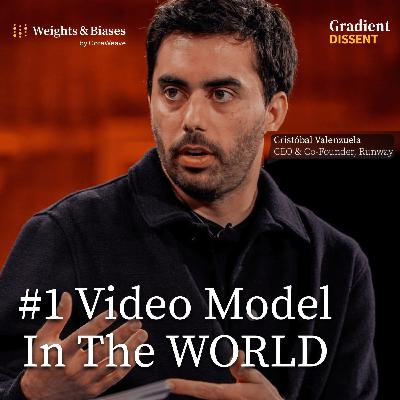
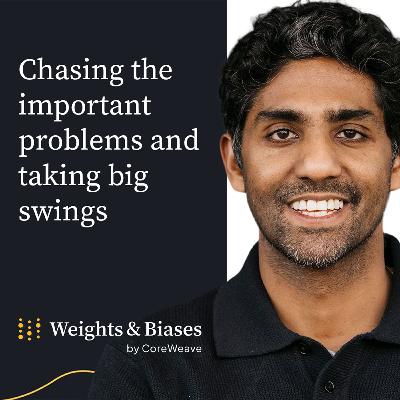
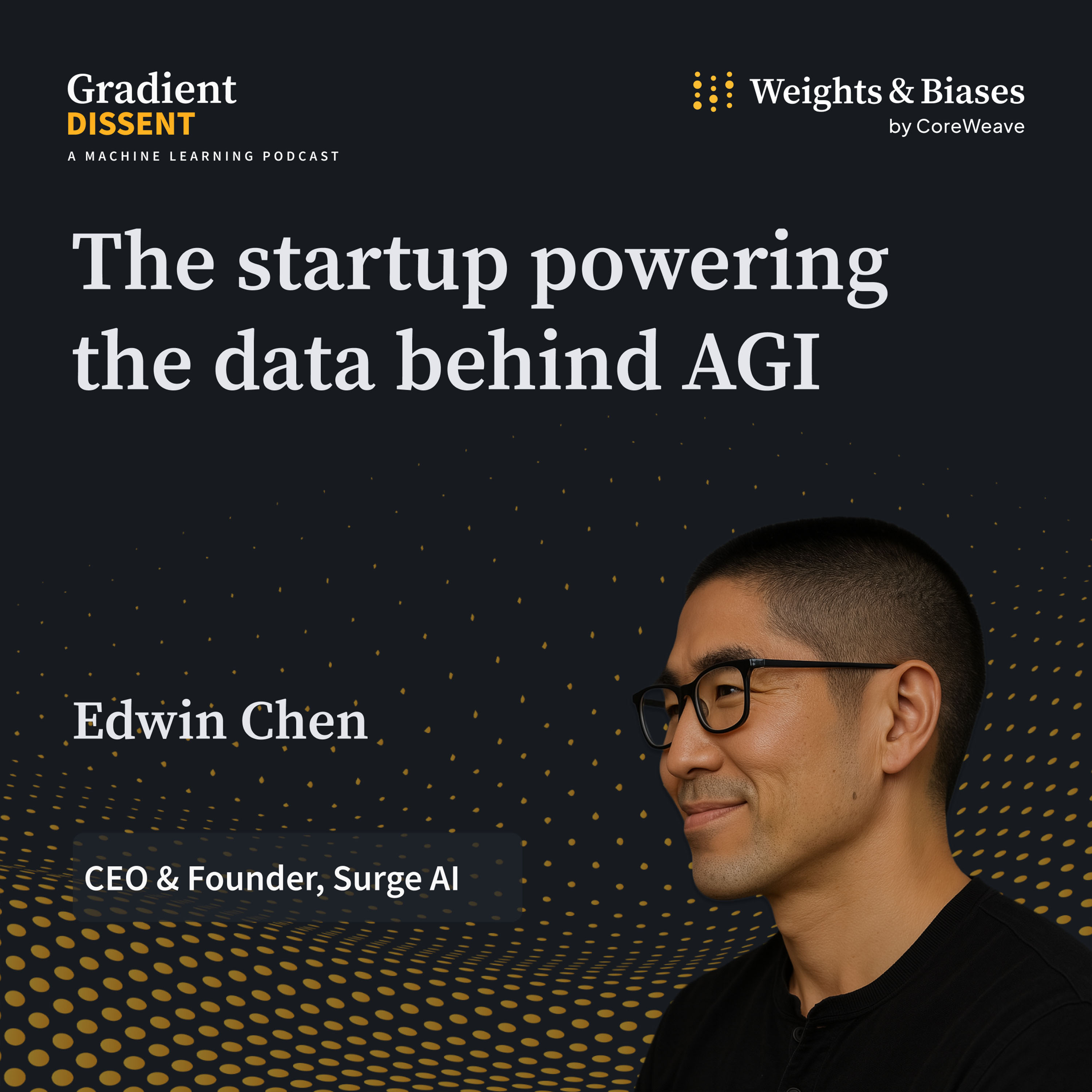


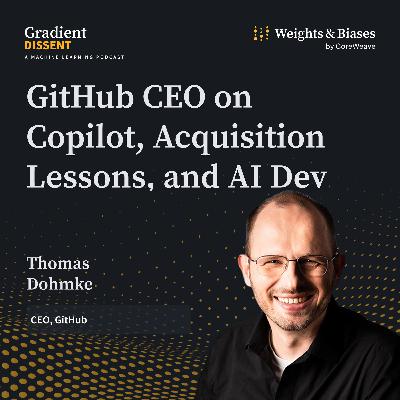
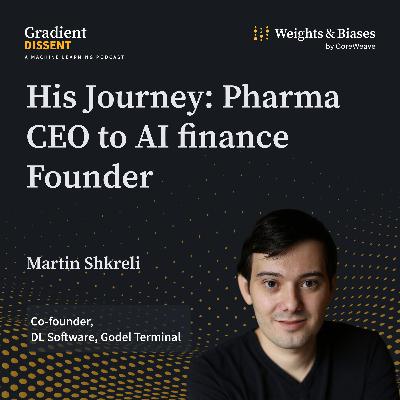
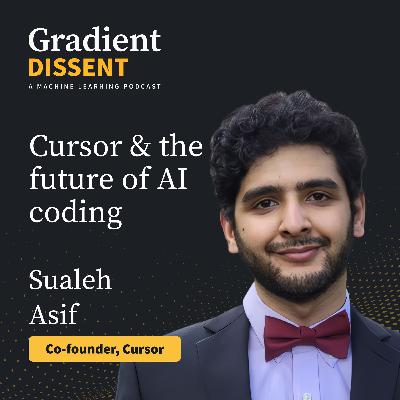














This podcast channel offers some really interesting content! If you're looking to delve deeper into the world of data annotation and its crucial role in successful AI implementation, like myself, compliment your listening experience with this article https://roboticsandautomationnews.com/2023/05/03/data-annotation-as-the-key-to-successful-ai-implementation/68052/. By combining the knowledge gained from the podcast channel with the perspectives shared in the recommended article, you'll develop a comprehensive understanding of the power of data annotation in AI. Take the opportunity to enhance your understanding of this important topic and stay informed about the latest advancements in AI implementation.
A very good solution to develop your business better. Now there are companies like https://earthmoving-rentals.com.au/ that can give you the opportunity to rent equipment for construction or farming
Great pod. Really enjoyed the in-depth discussion as well as explanation on where the low-resource ML fits in today!